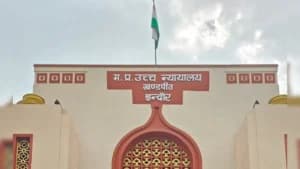In a significant ruling, the Kerala High Court rejected a life convict’s plea for emergency parole to care for his pregnant wife, emphasizing the sanctity of prison rules and the balance between convict rights and justice for victims.
The petitioner, Bindhu K.P., approached the court seeking temporary release of her husband - convicted for murder in 2000 and serving a life sentence - so he could assist her during a high-risk pregnancy following an IVF treatment. She claimed to have conceived after years of failed attempts and highlighted her need for support, especially due to her age (42 years) and lack of family assistance.
Read also:- Delhi High Court Quashes FIR in Mutual Compromise Case Involving Relatives
"The prison walls are not just physical barriers, but also symbols of the suspension of certain fundamental rights," noted Justice P.V. Kunhikrishnan, presiding over the case.
As per Rule 400(1) of the Kerala Prisons & Correctional Services (Management) Rules, 2014, emergency parole is reserved for exceptional situations, including:
- Death or serious illness of close relatives
- Marriage of immediate family members
- Destruction or collapse of a convict’s home
Read also:- Supreme Court Sets Aside High Court Order, Directs Fresh Hearing on 4-Year Sentence
The court observed that pregnancy care of a spouse is not listed as a valid reason under these provisions.
"If this trend continues, convicts will seek leave for temple festivals or family trips. The reformation goal of sentencing must not dilute the punishment," remarked the judge.
Justice Kunhikrishnan emphasized that while courts may occasionally use extraordinary jurisdiction under Article 226, such powers should only be invoked in rarest of rare cases - when no statutory remedy is available. In this case, the statutory authority had already denied the application via a detailed order.
Read also:- Kerala High Court Acquits Accused in NDPS Case Due to Lack of Evidence on Possession and Identification
"A convict is not entitled to enjoy life like an ordinary citizen. Victims and their families deserve the dignity of justice. Granting leave in such situations would shake public confidence in the judiciary," the court added.
The judgment also referred to the Division Bench’s ruling in Sandhya v. Secretary, Secretariat [2023 (5) KHC 174], reaffirming that courts must refrain from routinely entertaining parole petitions unless there’s legal or humanitarian urgency.
In conclusion, the Kerala High Court dismissed the writ petition, reiterating that reformation must occur within prison walls, not outside them through leniency.
Case Title: Bindhu K.P vs State of Kerala & Others
Case Number: W.P. (Crl.) No. 978 of 2025















